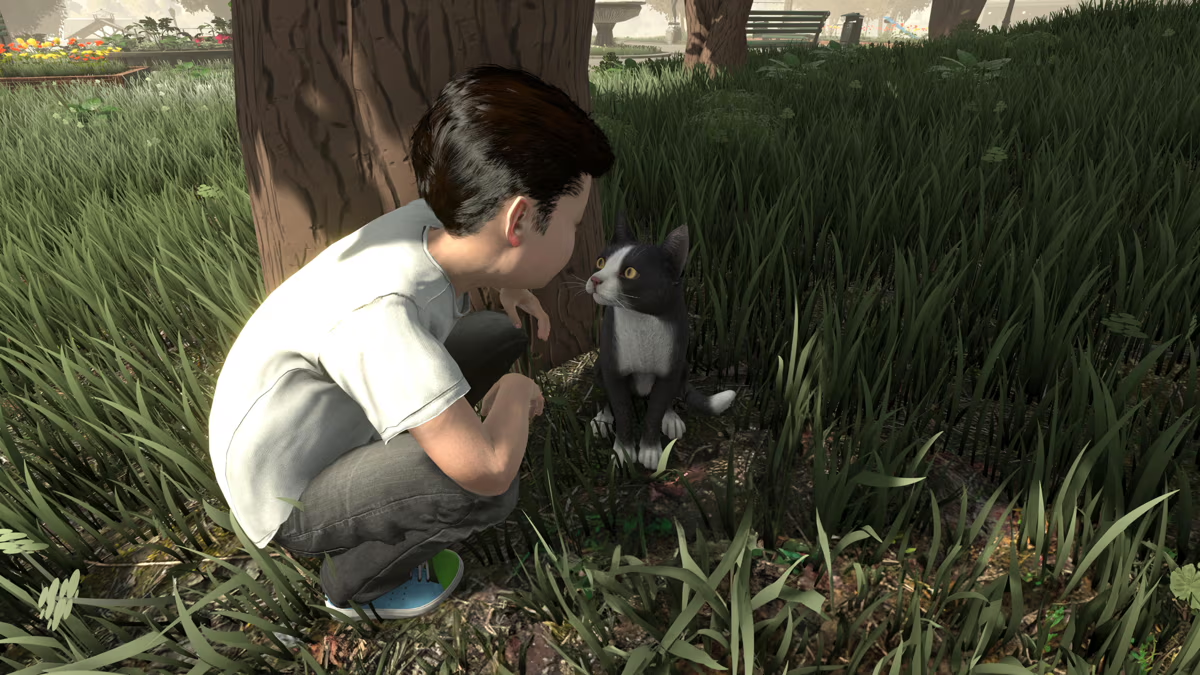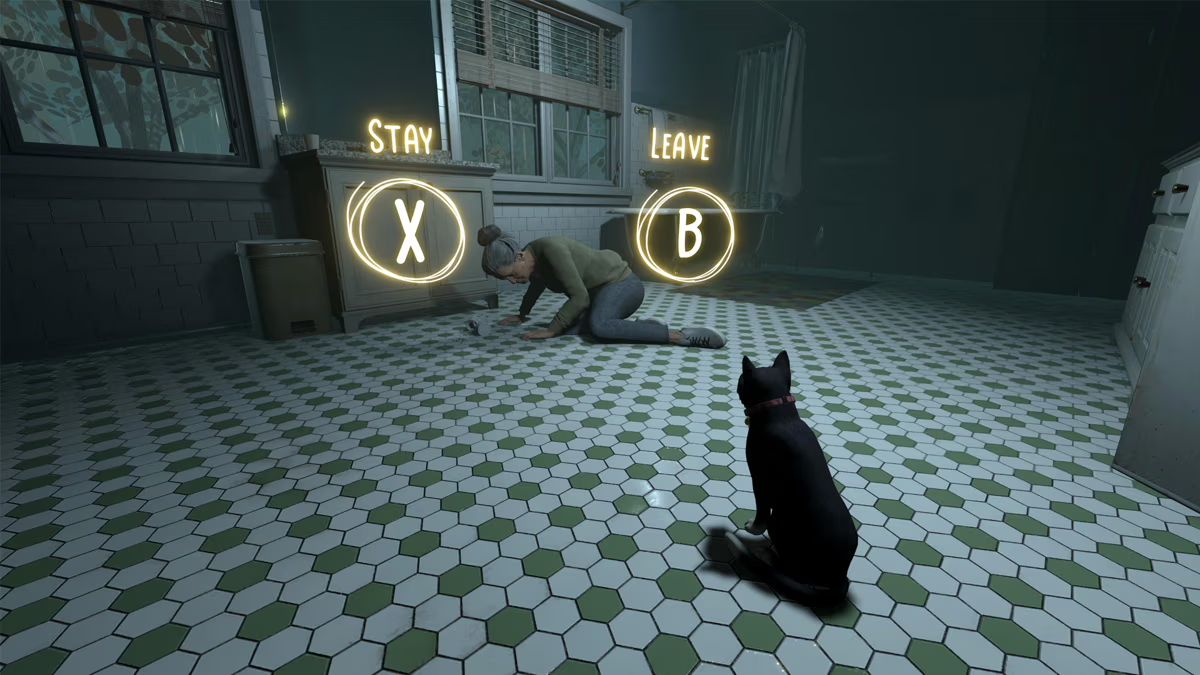Copycat | PS5 Review
I’m not a cat person—quite allergic to them, in fact. But that doesn’t mean a game about abandonment, identity, and finding your way home can’t get to me. Those kinds of feelings are universal, and Copycat taps into them in a way that’s quiet, emotional, and surprisingly powerful.
Developed by Spoonful of Wonder and published by Neverland Entertainment and Nuuvem, Inc., Copycat tells its story through the eyes (and inner monologue) of a cat named Dawn. This short but deeply affecting indie game explores what it means to belong—and what it feels like to be left behind. You don’t have to love cats to appreciate Copycat. You just have to be human.
[PSA: Please don’t adopt pets as holiday gifts, especially for young children, unless you’re fully committed to their lifelong care. Animals aren’t toys, and they deserve more than to be discarded once the novelty wears off.]
First “Purr-son” Shooter
At its core, Copycat is about connection, loss, and the search for belonging. You play as Dawn, a cat who’s been passed from one home to another, eventually finding herself adopted by an elderly woman named Olive. What begins as a slow, hesitant bond between the two gradually deepens, until life throws both of them into unexpected and painful directions.
The game keeps its narrative grounded and personal, told mostly through Dawn’s inner thoughts as she observes the world around her. It’s a quiet, emotional journey that doesn’t rely on action-packed moments. Instead, it focuses on small gestures, and the longing to be understood. The result is a story that feels intimate and, at times, uncomfortably real.
Kitten Around
Copycat is first and foremost a narrative-driven experience. While there are brief segments where you can freely roam as Dawn, most of the game unfolds through scripted interactions, quick-time events, and interactive cinematics. These scenes often shift into a limited first-person perspective, where you’ll respond to button prompts or select inner monologue options that reflect Dawn’s emotional state.
If you’re expecting something like Stray, with exploration, puzzles, or action mechanics, this isn’t that. Copycat is far more focused on storytelling than gameplay. That said, there are occasional dream sequences where Dawn imagines herself as a wild panther in the African savannah, hunting prey and moving freely through the wilderness. These segments are short and symbolic, serving more to support the narrative than to offer traditional gameplay.
There’s no combat, no fail states, and little in the way of challenge. The interactivity is light, but meaningful—meant to draw you deeper into Dawn’s thoughts rather than test your reflexes or skills.
Hug Your Pets!
Copycat embraces a soft, painterly art style that matches its heartfelt tone. Interiors feel warm and personal, capturing the essence of a quiet life filled with memory and routine. As you explore, Dawn’s thoughts are presented as floating text throughout the environment—offering commentary on objects, emotions, and the world around her. This minimalist approach helps center the experience around her inner journey rather than flashy visuals or set pieces.
The soundtrack is one of the game’s highlights, featuring light piano motifs and occasional sweeping orchestral swells that are reminiscent of a Thomas Newman film score (Finding Nemo, Road to Perdition). The music is delicate, emotional, and perfectly timed to underscore the game’s biggest emotional turns. It’s supported by subtle ambient sounds that help sell the quiet intimacy of the home, from the murmur of a television to the distant ticking of a clock.
That said, the camera can be awkward at times, occasionally clipping through walls or furniture, and some angles during scripted sequences feel awkward or disorienting. It’s a minor blemish in an otherwise immersive presentation, but one worth noting.
I’ll Take “Games That Make a Grown Man Cry” for $200
Again, I’m not a cat person, but it still delivers a surprisingly emotional punch. Copycat may be a small game in scope, but it’s a gentle, melancholic journey told through the eyes of a creature that doesn’t speak, yet says so much. The story unfolds with quiet power, touching on themes like loss, belonging, and the complicated bonds we form, whether we walk on two legs or four.
It’s not the kind of game you play for challenge or action, but for the feelings it stirs up when you least expect it. Short, bittersweet, and deeply personal, Copycat is a reminder that sometimes the softest stories are the ones that hit the hardest. Keep tissues nearby and hug your pets and loved one every now and then.
To hear me talk more about Copycat, be sure to listen to the May 28th, 2025 episode of The Gaming Outsider Podcast around the 1:04:10 time stamp.
This review is based on a PlayStation 5 copy of Copycat provided by Pirate PR for coverage purposes. It is also available on Xbox Series X/S and PC via Steam.








